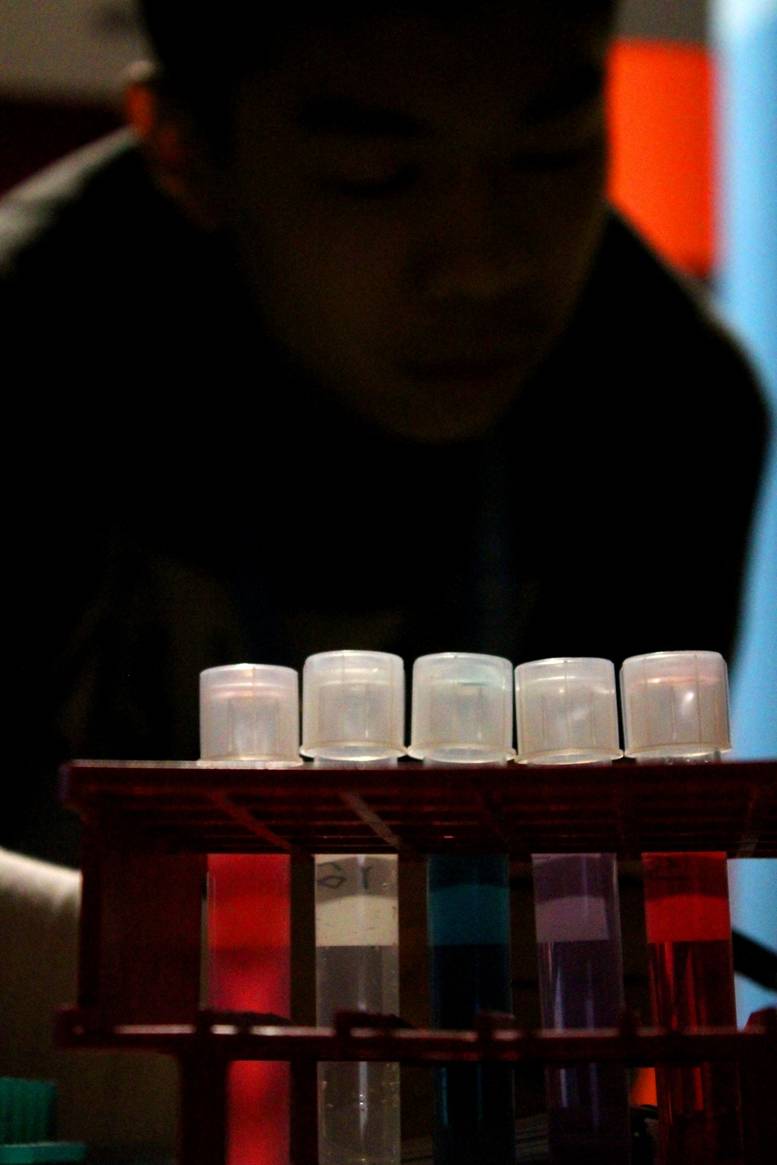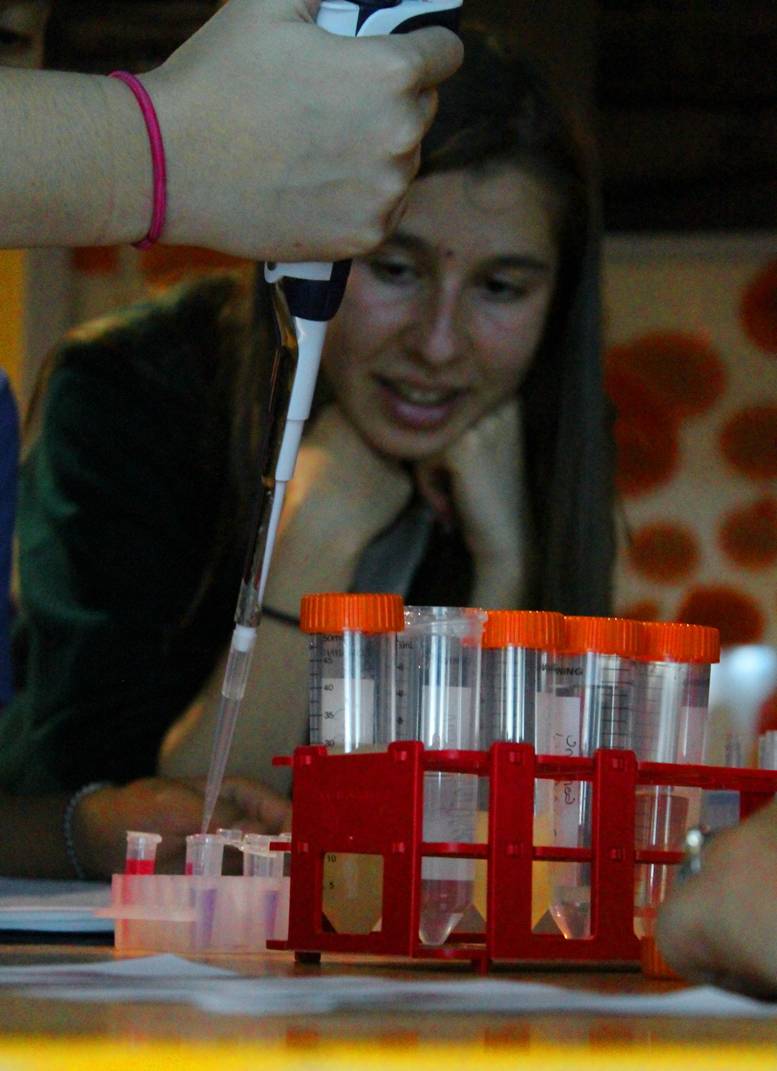Studies show that teenagers who participate in museum-based programs are likely to develop an interest in science and attain a better understanding of the science they learn in the classroom (Kisiel, 2006).
I had a chance to drop into an after school session of the Future Science Leaders (FSL) program to help out and observe their murder mystery activity and the students in action. The FSL program aims to inspire and challenge students in the fields of science and technology. The students in this program are all Metro Vancouver high school students who applied to the program this past spring and started their after school sessions this September.
This particular session began with a story outlining a mysterious murder along with a few possible suspects. The students were grouped and told that they would be visiting evidence stations to learn more about the crime scene. The evidence stations included poison testing, DNA testing and fingerprint analysis.
The evidence stations were interactive and provided students with opportunities to engage in group-based problem solving while learning new laboratory skills such as pipetting, which was the clear favourite of many! The excited students ran from station to station to be the first to collect all the evidence to be reviewed. They worked diligently to take notes and reasoned with their team members as they talked about the possible conclusions each piece of evidence provided. Their voices ranged from whispers, to prevent competing teams from overhearing, to loud exclamations when they discovered the types of science lab techniques they would be implementing.
After the evidence collection, the students were given additional time to ask experts, review additional data, reconcile conflicting pieces of data and outline the evidence that best supported their theories. The final goal was to write a blog post that outlined what they thought had happened and why. Not only was it important for them to work in teams and problem solve, but it was also important to effectively communicate their conclusions and reasoning to their peers.
This session, along with the other FSL after school sessions, aims to provide science-oriented high school students with the space and time to connect with experts from the fields of science and technology and to extend their classroom science learning. It also supports the development of critical thinking skills that promote lifelong science learning (Canadian Association of Science Centres, 2008).
Learn more about the Future Science Leaders program.
Further Information
You can also check out what the current Future Science Leaders are doing by reading their blogs at futurescienceleaders.com
Sources
Canadian Association of Science Centres. (2008). STEP Up Canada! Ottawa, Ontario.
Kisiel, J. (2006). Urban teens exploring museums: Science experiences beyond the classroom. The American Biology Teacher. 68(7). 396-401.



